The legal profession’s uneven progress on racial diversity is enduring and well documented, so what needs to change? Eduardo Reyes reports from the Gazette’s latest roundtable
At the table
Top row (l-r): Eduardo Reyes, Law Society Gazette (chair); Karl Brown, partner, Clarke Wilmott, Law Society Social Mobility Ambassador; Lubna Shuja, president, the Law Society
Middle row (l-r): Paul McFarlane, partner, Capsticks, director, Black Solicitors Network; Sundeep Bhatia, sole practitioner, former Law Society Council member; Trevor Sterling, senior partner, Moore Barlow
Bottom row (l-r): Sandra Yamate, founder Institute for Inclusion in the Legal Profession; Jerry Garvey, the Law Society; Julian Richard, author The 1% Study; not pictured: Ranjit Sond, chair, Society Asian Lawyers; Sukhi Gill, Tribunal judge; Jacqueline Devonish, senior coroner, county of Cheshire, committee member, Ethnic Minority Lawyers Division
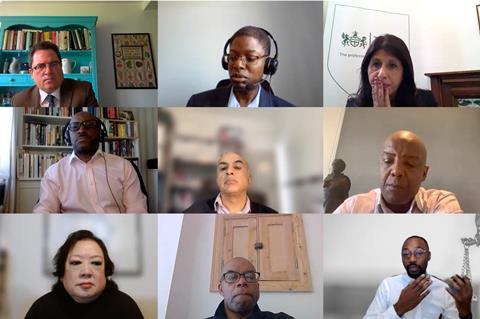
The murder in Minneapolis of George Floyd, an unarmed 46-year-old Black man, by a white policeman in May 2020 was widely perceived to be a watershed moment, including by the legal profession in England and Wales. The leadership of professional bodies, including the Law Society and Bar Council, and law firms issued public and internal statements that acknowledged the event’s impact on staff and expressed solidarity. ‘Black lives matter’ was not just the slogan, it was the unequivocal message. Floyd’s murder, caught on film, had lent a new urgency to open conversations about race, race inequalities and racism.
Some might question why the circumstances of Floyd’s death should lead to introspection and searching questions at the top of the legal profession this side of the Atlantic. But that rather misses the point. It is like saying the only appropriate response to the death of Princess Diana would have been a seatbelt safety campaign. Subsequent events did not respect attempts at such limitations.
Law Society research found a third of Black African and Caribbean solicitors say they have experienced some form of discrimination or bullying in the workplace – the highest figure reported by any ethnic group. There is a particular problem across the profession in retaining Black solicitors. Figures confirm that just 0.67% of partners at major UK law firms are Black.
Firsts
The uneven progress the legal profession has made in this regard has been in evidence recently enough for several roundtable attendees to have experienced being a ‘first’. Trevor Sterling, senior partner at Moore Barlow, is one. ‘This Saturday will be my 38th anniversary in law,’ he says. For 29 of those years he has been a partner, at four law firms, and ‘notably’, he adds, ‘in each of those firms I have been the first, if not the only, Black partner.
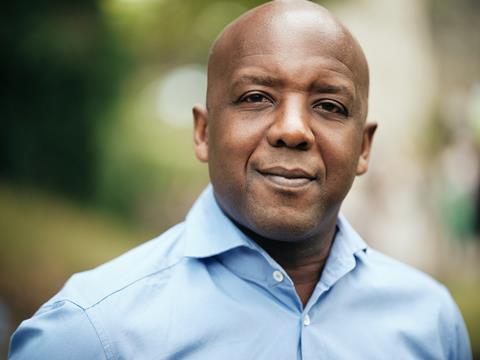
‘I want to use my experiences to help lift those from ethnic communities so that they have an equal and fair opportunity to enjoy some of the successes that I’ve had as a lawyer in this wonderful profession.’
Lubna Shuja, newly installed president of the Law Society, also has the experience of being a double ‘first’ – as the Society’s first Asian and first Muslim holder of the office.
‘I’m originally from Bradford, a working-class background, went to a state school,’ Shuja says. She notes that without a university grant from her local authority she would not have gone to university. ‘My parents couldn’t afford to pay for me to do that, and I don’t think – in fact, I know – I would not have had the courage to take on the loans that students do now to get through study.
‘I think we are making progress, but it feels like it’s been a hell of a long time coming… I launched my presidential plan last Wednesday. Diversity, social mobility and social inclusion are some of the priorities I want to focus on… I plan to have a particular focus on progression to the senior levels of the profession, which is not happening at the moment.’ That includes a focus on the judiciary, she adds.
'A careers adviser gave me three job options. One was a warehouseman, one was a tennis racket stringer and the other was an outdoor clerk for a law firm. It was pure chance that I took that final option'
Trevor Sterling, Moore Barlow
The discussion begins with a look at the profession’s diversity statistics. Shuja recalls that when she joined the profession she became one of only 709 solicitors who were from a Black, Asian or minority ethnic background. Some 30 years later, the figure stands at 18% but that covers unequal outcomes. While 3% of the general working population are from a ‘Black background’, she notes, the figure for the legal profession is 2%. Asians might comprise 12% of the profession, but those with a Bangladeshi background are under-represented.
Sterling says that for many, the entry points to law are too narrow and homogenous, favouring those who have done well at an early stage academically.
Sterling did not go to university but qualified as a solicitor via the legal executive route. He was a partner within three years of qualification but notes he had more luck than encouragement. ‘A careers adviser gave me three job options,’ he recalls. ‘One was a warehouseman, one was a tennis racket stringer and the other was an outdoor clerk for a law firm. It was pure chance that I took that final option… there’s a lot of talent out there that is simply unable to access the profession.’
One issue is that grade requirements have risen, notes Julian Richard, author of The 1% Study report. He uses the example of national firm Browne Jacobson. That firm, he says, realised that ‘a fifth of the current partnership at Browne Jacobson couldn’t have applied for a training contract at Browne Jacobson based on existing requirements’. This led Browne Jacobson to remove its grade requirements. ‘It’s not lowering the bar, it’s just widening the gate,’ he adds.
Entry point
Do role models matter? Sterling has seen their importance: ‘Having become senior partner at Moore Barlow we have more applications now from those from ethnic communities than we’ve ever had before. And that is because, as we all say, people believe they can be what they can see.’
Capsticks partner Paul McFarlane, director for the Black Solicitors Network, turns to concerns about the Solicitors Qualifying Examination. ‘White candidates,’ he notes, referring to results published in July 2022, ‘were passing at 63% in this first year, whereas Black students were only passing at 23% and Asian students at 54%... that does seem quite a significant disparity. Something needs to be done in terms of looking into why that is.’
Ranjit Sond, chair of the Society of Asian Lawyers, says that the outcome for SQE candidates is ‘really worrying’. He notes that the outcomes for judicial appointments are ‘not too dissimilar’. Sond says: ‘I’ve had a few meetings with the [Judicial Appointments Commission] in my role with the Society of Asian Lawyers and they just don’t have an answer.’
Outreach efforts, he adds, saw an increase in applicants from candidates with Black and Asian backgrounds, ‘but those candidates were still not coming out the other end’. He concludes that ‘there’s something wrong with the process’, but not the ‘pipeline’.
Going up
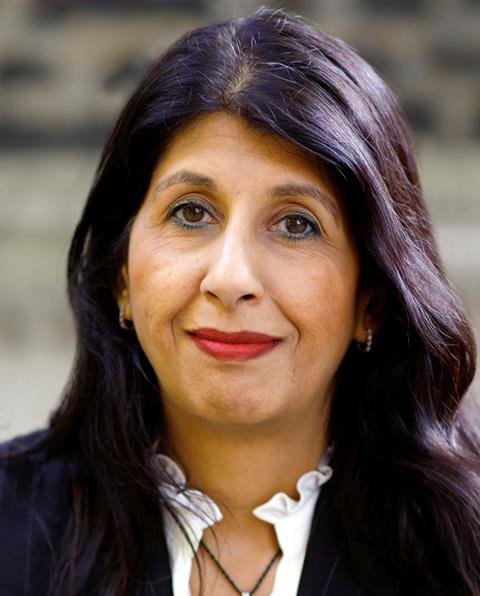
For those who qualify, career progression too often stalls. Why? ‘They leave much, much earlier than their white counterparts,’ Shuja says. The Law Society, she adds, has studied this: ‘Black, Asian and minority ethnic solicitors are more likely to move around during their career, much more so than their white counterparts. Black, Asian, and minority ethnic females move even more.’
There is evidence pointing to an unbalanced allocation of prime work, meaning worse rewards and experience. ‘Black, Asian and minority ethnic solicitors are, on average, earning 15% less than their white counterparts,’ she notes.
Clarke Willmott partner Karl Brown also points to ‘the importance of fair allocation of high-value’ work in commercial firms. ‘That’s critical to provide evidence that you should be able to advance,’ he says. ‘It’s important that firms have a transparent promotion process… it can often seem a bit like a mystery.’
Tribunal judge Sukhi Gill suggests work allocation may go some way to explaining why JAC initiatives to attract more Black, Asian and minority ethnic judicial officeholders have met with limited success. ‘The exposure to high-profile cases, which really nails your colours to the mast when you’re looking for that promotion,’ she says. ‘That isn’t happening.’
Then there are questions about the culture that prevails in elite law firms and the higher judiciary. Jacqueline Devonish, senior coroner for Cheshire and an Ethnic Minority Lawyers Division committee member, says ‘culture’ can be a barrier to progress.
Why is this? McFarlane answers: ‘Firms, certainly in the past, have wanted more to change the candidate rather than themselves.’
‘Nobody asks you what you need,’ Devonish continues. ‘They assume everything about you. Nobody says, “What do you need to be able to feel included in this firm, or this space?” They expect you to do all the changing, so that you can fit in.’
'White candidates passed [the SQE] at 63%, whereas Black students were at 23% and Asian students at 54%... that does seem a significant disparity. Something needs to be done in terms of looking into why'
Paul McFarlane, Capsticks
From a US perspective, Chicago-based Sandra Yamate, founder of the Institute for Inclusion in the Legal Profession, found firms ‘giving to worthwhile causes, but ignoring the things they could be doing directly to make things better in their own profession.
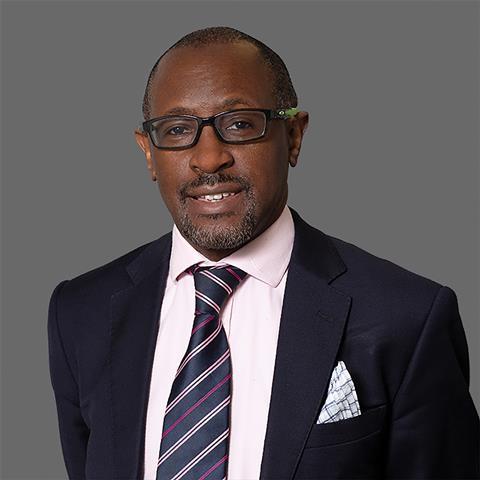
‘They’re happy to make a significant financial contribution to support greater educational opportunities for people from under-represented communities, but it doesn’t mean that they’re going to change how they actually do business. This might make it more possible for women and minorities to actually enter the profession and then thrive within it.’
From the start, attendees have been referring to ‘Black, Asian and minority ethnic’. Yet several also note that no one should be referred to as a ‘BAME lawyer’. So where does this leave the language the legal profession uses as it strives for more equal outcomes as measured by race?
Well, from the outset the use of the categorisation ‘BAME’ has been accompanied by qualifications, reflecting that there is no single ‘BAME’ experience of race or of progress toward any definition of equality. ‘We don’t want to allow words to be a distraction from core issues,’ Richard says. But he stresses that ‘race fluency’ is important. ‘The ability to communicate on matters relating to race and ethnicity is a critical interpersonal skill,’ he says. ‘Law firms have to invest in improving that skill, particularly in supervisors and line managers, who have a disproportionate effect in the positive inertia for people to stay at the firm or leave the firm.’
Authenticity counts for a great deal here, Richard adds: ‘When you try, and you have that benign curiosity and you lead with good faith, even if you don’t know the right word, it shows that you care.’
Sterling concludes on an upbeat note. ‘I spent the first half of my career conscious that I was Black and the second half celebrating it,’ he says. ‘So I wear my ethnic background with pride. The struggles I have faced have been unbelievable. However, I’ve got there, and I’ve got there with a positive mindset, with an intention to try and remove a lot of the obstacles for others coming through.’
It's all in the numbers – how to become race-fluent
Under-representation
Serious disparities are behind the headline figure of 18% ‘BAME’ representation in the legal profession. Under-represented groups include those whose background is Black African and Caribbean. Making up 3% of the general population, these groups comprise 2% of solicitors and, in larger UK law firms, 0.67% of partners – in the City, that is fewer than 100 partners in total.
Discrimination is a live issue
A third of Black African and Caribbean solicitors say they have experienced some form of discrimination or bullying in the workplace. That has a hard material expression – Law Society research, which includes this group, shows that Black, Asian, and minority ethnic solicitors are, on average, earning 15% less than their white counterparts.
Serious concerns focus on entry to the profession
Results from the Solicitors Qualifying Examination part 1 (SQE1) published in July 2022 show a pass rate for white candidates of 63%. For Asians it was 54% – just above the overall pass rate of 53%. Just 23% of Black candidates passed.
Firms and workplaces need to change
Efforts to attract BAME candidates may be well intentioned, but there is criticism that firms do not make sufficient changes to their own culture – expecting diverse recruits to fit into an existing culture designed or developed according to old norms. Better ‘race fluency’ is urged, as well as consideration and consultation on what changes are needed. On racial diversity, the legal profession fares better on entry/recruitment than on retention.
...But there has been progress
In 30 years, Law Society president Lubna Shuja notes, the profession has become more representative – numbers have risen significantly from the 709 solicitors who were Black, Asian and minority ethnic when she joined the roll.
- Our thanks to Jerry Garvey from the Law Society’s Diversity and Inclusion team























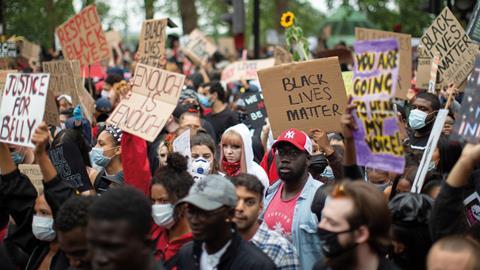













2 Readers' comments